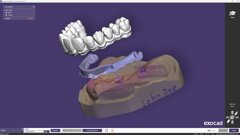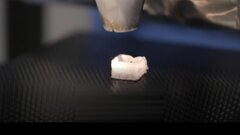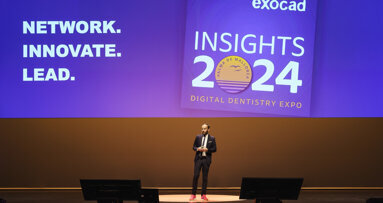KUOPIO, Finland: The dynamics of a visit to the dentist extend far beyond the purely technical elements. The psychological comfort of the patient and the crucial role played by the dentist in fostering this sense of ease are now recognised as a vital part of successful treatment. Based on this understanding, staff at the University of Eastern Finland’s Institute of Dentistry and Language Centre have recently collaborated to train dental students on how to communicate with patients in the clinic.
In recent years, dental care has come to focus on the individual patient, taking into account their cognition, emotions, needs and preferences and involving the patient in their treatment. Communication is central to this approach. Indeed, as stated in a recent literature review on the topic, “Dentist–patient communication is a bidirectional process involving the exchange of ideas that should be clear (easy to understand), correct (accurate), concise (to the point), complete (with essential information), and cohesive (well organised).”
In speaking to patients about their health or proposing or explaining treatment, for example, the students at the Institute of Dentistry are trained to use language that is relatively free from jargon or theoretical parlance and to avoid overwhelming the patient with too much information. “It takes practice in people skills to assess the patient’s level of knowledge and their informational needs,” said Satu Korpisaari, a university lecturer at the institute, in commenting on the value of the interaction training.
The approach to dentist–patient interaction championed by the university is holistic in nature, based on an appreciation that, while verbal communication is central, it is but one aspect of the total interaction. The dental students are taught to seek to demonstrate empathy for the patient, especially regarding anxiety, fear or financial difficulties. They are also taught about the importance of body language, including facial expressions and eye contact, for promoting a positive patient experience.
Such a strong emphasis on interpersonal skills in training at the Institute of Dentistry contrasts markedly with an earlier era of dentistry. In demonstration of the value of this, third-year dental student Eetu Mikkonen said in a university press release, “Older people often mention how, in the past, they might have left the dentist without even knowing which procedures had been done in their mouth. Nowadays, treatment is planned together with the patient, and nothing is done without their consent. Procedures are also less frightening when the patient feels they can always influence the situation.”
Throughout Mikkonen’s studies, he has rehearsed patient encounters with fellow students in the role of patients and with real actors and then analysed these. He attested to the value of the interaction training he has received: “My encounters with patients have been successful, likely due to the emphasis placed on interaction skills in my studies.”
“Creating a safe atmosphere and building trust, collaborating with the patient and showing empathy are important skills for a dentist. You should also recognise the patient’s emotions and address them if necessary. That’s why it’s important to teach empathy to dentists,” said Dr Marja-Leena Hyvärinen, a senior lecturer at the Language Centre.
There is growing recognition among dental schools of the critical role communication plays in patient-centred care. The University of Eastern Finland’s approach highlights how strong interpersonal skills can enhance the patient experience. By integrating structured communication training, dental education is shifting to a patient-centred model, where trust and understanding are as vital as clinical expertise.
Topics:
Tags:
Running a dental practice is a multifaceted endeavour that requires not only excellent clinical knowledge but also a solid understanding of business. In ...
For master dental technician Vincent Fehmer, prioritising communication and understanding patient preferences are paramount for achieving successful ...
For over a century, the field of dentistry has evolved, driven by innovations that have reshaped how dentists care for patients. We believe we are now ...
On World Refugee Day, FDI World Dental Federation unveiled a pivotal policy brief titled Addressing Oral Health Needs in Refugees: Policy and Collaboration ...
Live webinar
Tue. 3 March 2026
11:00 am EST (New York)
Dr. Omar Lugo Cirujano Maxilofacial
Live webinar
Tue. 3 March 2026
8:00 pm EST (New York)
Dr. Vasiliki Maseli DDS, MS, EdM
Live webinar
Wed. 4 March 2026
12:00 pm EST (New York)
Munther Sulieman LDS RCS (Eng) BDS (Lond) MSc PhD
Live webinar
Wed. 4 March 2026
1:00 pm EST (New York)
Live webinar
Fri. 6 March 2026
3:00 am EST (New York)
Live webinar
Tue. 10 March 2026
4:00 am EST (New York)
Assoc. Prof. Aaron Davis, Prof. Sarah Baker
Live webinar
Tue. 10 March 2026
8:00 pm EST (New York)
Dr. Vasiliki Maseli DDS, MS, EdM



 Austria / Österreich
Austria / Österreich
 Bosnia and Herzegovina / Босна и Херцеговина
Bosnia and Herzegovina / Босна и Херцеговина
 Bulgaria / България
Bulgaria / България
 Croatia / Hrvatska
Croatia / Hrvatska
 Czech Republic & Slovakia / Česká republika & Slovensko
Czech Republic & Slovakia / Česká republika & Slovensko
 France / France
France / France
 Germany / Deutschland
Germany / Deutschland
 Greece / ΕΛΛΑΔΑ
Greece / ΕΛΛΑΔΑ
 Hungary / Hungary
Hungary / Hungary
 Italy / Italia
Italy / Italia
 Netherlands / Nederland
Netherlands / Nederland
 Nordic / Nordic
Nordic / Nordic
 Poland / Polska
Poland / Polska
 Portugal / Portugal
Portugal / Portugal
 Romania & Moldova / România & Moldova
Romania & Moldova / România & Moldova
 Slovenia / Slovenija
Slovenia / Slovenija
 Serbia & Montenegro / Србија и Црна Гора
Serbia & Montenegro / Србија и Црна Гора
 Spain / España
Spain / España
 Switzerland / Schweiz
Switzerland / Schweiz
 Turkey / Türkiye
Turkey / Türkiye
 UK & Ireland / UK & Ireland
UK & Ireland / UK & Ireland
 Brazil / Brasil
Brazil / Brasil
 Canada / Canada
Canada / Canada
 Latin America / Latinoamérica
Latin America / Latinoamérica
 USA / USA
USA / USA
 China / 中国
China / 中国
 India / भारत गणराज्य
India / भारत गणराज्य
 Pakistan / Pākistān
Pakistan / Pākistān
 Vietnam / Việt Nam
Vietnam / Việt Nam
 ASEAN / ASEAN
ASEAN / ASEAN
 Israel / מְדִינַת יִשְׂרָאֵל
Israel / מְדִינַת יִשְׂרָאֵל
 Algeria, Morocco & Tunisia / الجزائر والمغرب وتونس
Algeria, Morocco & Tunisia / الجزائر والمغرب وتونس
 Middle East / Middle East
Middle East / Middle East




































To post a reply please login or register